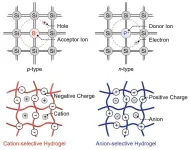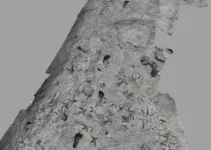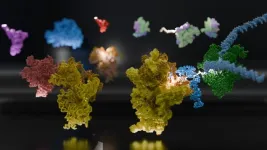(Press-News.org) UNDER STRICT EMBARGO UNTIL 6:30 PM November 28, 2024:
A recent major review of data published by the Lancet and led by Emory sports cardiologist Jonathan Kim, MD, shows that Black athletes are approximately five times more likely to experience sudden cardiac arrest (SCA) and sudden cardiac death (SCD) compared to White athletes, despite some evidence of a decline in rates of SCD overall. SCA and SCD have historically been a leading cause of mortality among athletes, particularly those involved in high-intensity sports.
The disparities in SCA/D rates highlights the need for increased research into the social determinants of health in younger athletes, a topic that remains understudied, according to Kim.
After examining a repository of national and international data focused on SCA/D in athletes accumulated over the last 30 years, Kim and colleagues from Lausanne University Hospital, Morristown Medical, Massachusetts General Hospital, and other prominent institutions reviewed the significant racial disparities that also persist in athlete electrocardiography (ECG) screenings, which have become a standard practice for competitive athletes.
These screenings often yield more false positives in Black athletes, which means that athletes may be wrongly identified as having a serious heart condition. For those with limited access to comprehensive follow-up testing this is especially problematic as these individuals may face unnecessary stress and may not be able to receive follow-up care to confirm whether results are accurate.
Social determinants of health, such as economic stability, proximity to health care facilities, access to health information, and experiences with discrimination can play a significant role in disparities in health outcomes, even in young athletes. By incorporating social determinants of health into future research, Kim says we may be better poised to understand how to mitigate the impacts on young athletes in particular.
“To truly address these disparities, it’s not enough to just screen for potential problems,” Kim says. “There needs to be an understanding on how to tackle the underlying social determinants of health that puts these athletes at a greater risk.”
In the Lancet review, Kim and colleagues stress that proper management of sudden cardiac arrest in athletes starts with adequate pre-participation evaluation (PPE) which involves careful planning and sufficient resources. “We need to look for potential underlying health conditions. We also need to consider all the environmental stressors that young individuals have to deal with and also where they grow up,” says Kim. An effective PPE history and physical examination should include appropriate follow-up, especially if ECG is included and abnormalities detected.
Looking ahead, the growing focus on this topic marks a substantial shift. “Just five to ten years ago, I doubt many were thinking about social determinants of health and impacts on young athletes,” says Kim. Asking these critical questions is a major step in the right direction. moving forward its essential to continue raising these questions but also taking action to address them.
END
Emory-led Lancet review highlights racial disparities in sudden cardiac arrest and death among athletes
2024-11-29
ELSE PRESS RELEASES FROM THIS DATE:
A new approach to predicting malaria drug resistance
2024-11-28
Researchers at University of California San Diego analyzed the genomes of hundreds of malaria parasites to determine which genetic variants are most likely to confer drug resistance. The findings, published in Science, could help scientists use machine learning to predict antimalarial drug resistance and more effectively prioritize the most promising experimental treatments for further development. The approach could also help predict treatment resistance in other infectious diseases, and even cancer.
“A lot of drug resistance research can only look at one chemical agent at a time, but what we’ve been able to do here is create a roadmap ...
Coral adaptation unlikely to keep pace with global warming
2024-11-28
Coral adaptation to ocean warming and marine heatwaves will likely be overwhelmed without rapid reductions of global greenhouse gas emissions, according to an international team of scientists.
Their study, led by Dr. Liam Lachs of Newcastle University, reveals that coral heat tolerance adaptation via natural selection could keep pace with ocean warming, but only if Paris Agreement commitments are realised, limiting global warming to two degrees Celsius.
“The reality is that marine heatwaves are triggering mass coral bleaching mortality events across the world’s shallow tropical reef ecosystems, and the increasing frequency and intensity of these events ...
Bioinspired droplet-based systems herald a new era in biocompatible devices
2024-11-28
UNDER EMBARGO UNTIL 19:00 GMT / 14:00 ET THURSDAY 28 NOVEMBER 2024
Bioinspired droplet-based systems herald a new era in biocompatible devices
Oxford University researchers have developed a set of biocompatible devices, which can replicate or surpass many electronic functions but use ions as the signal carriers.
The ‘dropletronic devices’ are made from miniature soft hydrogel droplets and can be combined to produce diodes, transistors, reconfigurable logic gates, and memory storage devices that mimic biological synapses.
The research team generated a biocompatible, dropletronic ...
A fossil first: Scientists find 1.5-million-year-old footprints of two different species of human ancestors at same spot
2024-11-28
More than a million years ago, on a hot savannah teeming with wildlife near the shore of what would someday become Lake Turkana in Kenya, two completely different species of hominins may have passed each other as they scavenged for food.
Scientists know this because they have examined 1.5-million-year-old fossils they unearthed and have concluded they represent the first example of two sets of hominin footprints made about the same time on an ancient lake shore. The discovery will provide more insight into human evolution and how species cooperated and competed with ...
The key to “climate smart” agriculture might be through its value chain
2024-11-28
In 2023, the United Nations climate conference (COP28) officially recognized the importance of agriculture in influencing and mitigating climate change. In a Policy Forum, Johan Swinnen and colleagues offer an approach to overcome challenges related to improving climate-sensitive farming practices across the globe. They discuss the importance of working with Agricultural Value Chains (AVC) by incentivizing small businesses who play an important role in the support of small- and medium-sized farms. This would involve both upstream enterprises related to seeds, fertilizer, ...
These hibernating squirrels could use a drink—but don’t feel the thirst
2024-11-28
The thirteen-lined ground squirrel doesn’t drink during its winter hibernation, even though systems throughout its body are crying out for water. Madeleine Junkins and colleagues now show that the squirrel suppresses the need to quench its thirst by reducing the activity of a set of neurons in highly vascularized brain structures called circumventricular organs, which act as a specialized connection point between brain, blood circulation and cerebrospinal fluid. The study by Junkins et al. helps explain how some hibernating animals ignore the powerful physiological drive to seek out water ...
New footprints offer evidence of co-existing hominid species 1.5 million years ago
2024-11-28
Newly discovered footprints show that at least two hominid species were walking through the muddy submerged edge of a lake in Kenya’s Turkana Basin at the same time, about 1.5 million years ago. The find from the famous hominid fossil site of Koobi Fora described by Kevin Hatala and colleagues provides physical evidence for the co-existence of multiple hominid lineages in the region—something that has only been inferred previously from overlapping dates for scattered fossils. Based on information on gait and stance gleaned from the footprints, Hatala et al. think that the two species were Homo erectus and Paranthropus ...
Moral outrage helps misinformation spread through social media
2024-11-28
Social media posts containing misinformation evoke more moral outrage than posts with trustworthy information, and that outrage facilitates the spread of misinformation, according to a new study by Killian McLoughlin and colleagues. The researchers also found that people are more likely to share outrage-evoking misinformation without reading it first. The findings suggest that attempts to mitigate the online spread of misinformation by encouraging people to check its accuracy before sharing may not be successful, the researchers ...
U-M, multinational team of scientists reveal structural link for initiation of protein synthesis in bacteria
2024-11-28
IMAGE
ANN ARBOR—Within a cell, DNA carries the genetic code for building proteins.
To build proteins, the cell makes a copy of DNA, called mRNA. Then, another molecule called a ribosome reads the mRNA, translating it into protein. But this step has been a visual mystery: scientists previously did not know how the ribosome attaches to and reads mRNA.
Now, a team of international scientists, including University of Michigan researchers, have used advanced microscopy to image how ribosomes recruit to mRNA while it's being transcribed by an enzyme called RNA polymerase, or RNAP. Their results, which examine the process in bacteria, are published in the journal ...
New paper calls for harnessing agrifood value chains to help farmers be climate-smart
2024-11-28
Washington DC, November 28, 2024: The global food system is uniquely vulnerable to climate impacts, making adaptation of paramount importance. While contributing roughly one-third of total anthropogenic emissions, food systems around the world fortunately also hold immense potential for mitigation through improved practices and land use. A new article published today in Science emphasizes the critical role of agrifood value chains (AVCs) in supporting both adaptation and mitigation at the farm level.
Authored by Johan Swinnen (International Food Policy Research Institute), Loraine Ronchi (World Bank Group), and Thomas Reardon (Michigan State University and IFPRI), the paper pushes back ...




